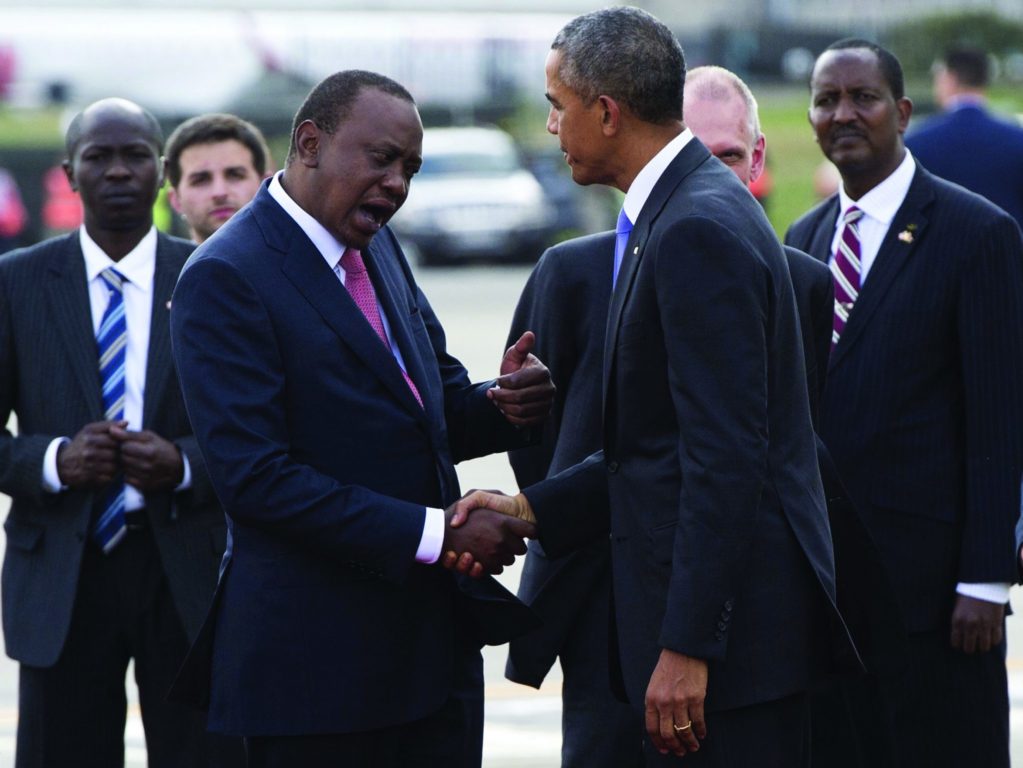At the end of July, United States (US) President Barack Obama visited Kenya as a head of state for the first, and probably last, time.
Obama had previously set foot in Senegal, Ghana, South Africa and Tanzania in official state visits.
During his most recent visit, there were three main agendas for the US leader: he co-chaired the Global Entrepreneurship Summit in Nairobi, renewed relations between his country and Kenya and, finally, emphasized the US’s economic commitment with Africa.
At a dinner hosted by the Kenyan government, Obama confirmed that the idea of expanding trade and investment between Africa and the US had garnered support of both the Republicans and Democrats in his country. These words, and Obama’s attendance at the 6th Global Entrepreneurship Summit in Nairobi, were apt. Kenya is one of the leading countries in Africa for entrepreneurial and innovative spirit.
Obama met entrepreneurs at an innovation fair. While in the country, he maintained a positive outlook on the pace and nature of innovation and entrepreneurship in Kenya. This is deserved. Kenya has revolutionized money transfer services with mobile technology and taken substantial steps at harnessing information technology to enhance both commercial growth and political accountability with platforms such as .
In a nutshell, Obama’s visit to the country highlighted the innovative and entrepreneurial side of Kenya that the world may not be familiar with. It also provided a unique chance for the tourism sector in the country to receive a much needed endorsement to stem its dwindling fortunes. It is hoped that this visit will attract business back to the country.
Politically, Obama’s visit to Kenya was a welcome development to the current administration whose relations to the US had become frosty. After allegations of human rights abuses when the current government stepped into office, and threats of a more severe approach to economic engagements, the Kenyan government was forced to turn to China. Many, in the US and Africa, have been keen on ensuring that the US does not lose Kenya as an ally. This visit, which some sections of Washington referred to as a ‘renewal of ties tour’, provided the perfect opportunity for rebuilding strained relations between the two countries. Obama’s ancestral ties to Kenya were beneficial and by the time the US president was on his flight to Addis Ababa, after holding bilateral trade talks with President Uhuru Kenyatta, the relationship seems to have warmed.
It wasn’t all smiles though. Obama was critical of African leaders over corruption and gender equality. He attacked Africa’s culture of presidents-for-life, urging the continent’s leaders to respect term limits.
“I think if I ran I could win, but I can’t,” he said, referring to the end of his second and final term.
His comments came as Burundi’s President Pierre Nkurunziza ran for a third term in office and the Rwandan parliament voted for a constitutional change to allow President Paul Kagame to run for a third term.
Teodoro Obiang Nguema Mbasogo of Equatorial Guinea, José Eduardo dos Santos of Angola and Robert Mugabe of Zimbabwe have been in power for more than 30 years.
“Nobody should be president for life. Your country’s better off if you have new blood and new ideas. I’m still a pretty young man but I know someone with new energy and new insights will be good for my country. It will be good for your country, too.”
At the African Union headquarters in Addis Ababa, Obama kept reiterating the need for closer understanding and better economic partnerships between the continent and the US. China has quickly snatched at business opportunities in Africa, leaving many in Washington worried. China’s approach of business with no strings attached has enticed African nations into ditching the Western-based business partnership model. Trade between China and Africa reached an impressive $222 billion in 2014; triple the value of trade between the US and Africa. Obama and the 200 American investors who traveled with him would like to see this gap reduced.
To do this, the US might reconsider its approach to Africa and even try its hand at dealing with countries that it has previously disagreed with on ideological matters.
